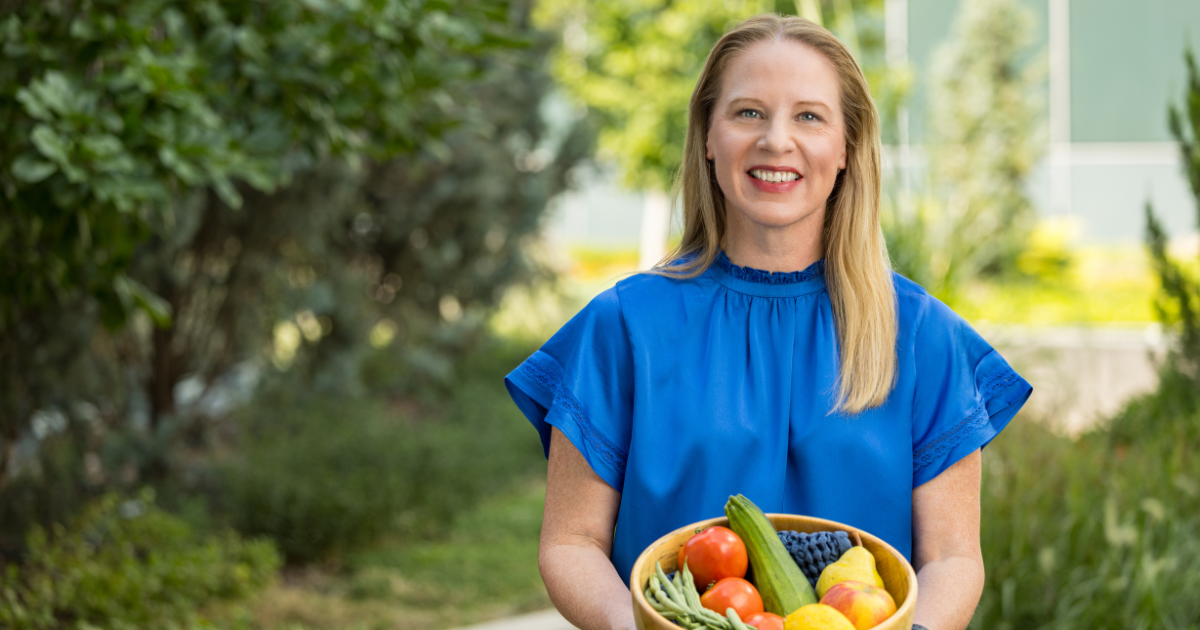Nutritionists help boost patient health through cancer journey and beyond

Maximizing your nutrition during and after cancer treatment is one of the important goals addressed by the Nebraska Medicine Cancer Survivorship Program.
“Cancer survivorship begins as soon as you are diagnosed with cancer,” says Rebecca Beaudoin, RDN, LMNT, Nebraska Medicine nutrition therapist specializing in nutrition for cancer patients.
“During active treatment, our goal is to help you maximize nutrition to prevent deficiencies, retain strength and maintain quality of life,” says Beaudoin.
While a diet rich in protein, fruits, vegetables and whole grains is very important during treatment, adjusting the recommendations to meet each person’s needs is essential, Beaudoin says.
“For example, patients can experience a variety of side effects during treatment that are different for each person,” explains Beaudoin. “We listen carefully to each person’s issues and individualize our recommendations to help with side effects of treatment. Our goal is to help you feel good and maintain quality of life.”
It’s common for patients to lose their appetite during treatment, so smaller, more frequent meals may be recommended, explains Beaudoin. “We also try to work protein into every meal and snack as protein can help you maintain your strength and keep your immune system strong,” she says.
Nutrition is critical to maintaining your health after treatment, but it takes on a little different focus. Patients can meet with a Nebraska Medicine health care provider through the Cancer Survivorship Program to discuss and develop a post-treatment plan to optimize their health going forward. This can also include consultation with a nutrition therapist.
We follow the recommendations developed by the American Institute of Cancer Research for post-treatment nutrition, says Beaudoin. These include:
- Maintain a healthy weight.
- Incorporate physical activity into your daily routine.
- Eat a diet rich in whole grains, vegetables, fruits and beans.
- Focus on getting your nutrients from food rather than supplements.
- Limit consumption of sweetened drinks and foods high in sugar.
- Limit intake of fast foods and other processed foods high in fat, starches and sugars.
- Reduce consumption of red and processed meats.
- Limit alcohol intake.
- Breastfeed if you are a new mother, which has been shown to reduce cancer risk.
“We focus on implementing small steps at a time to help you reach these goals,” says Beaudoin. “Our goal is to make your life easier, not harder. We like to say, ‘If it becomes stressful, it’s not wellness anymore.’”
The Cancer Survivorship Program also offers online recorded nutrition classes that include nutrition tips and recipes you can watch at your convenience. A cancer survivorship conference is held each year that features a variety of topics related to survivorship.
Your cancer journey doesn’t end after treatment. Receive continued help and support through our Cancer Survivorship Program at NebraskaMed.com/Survivorship.







